John Hurrell – 24 February, 2012
Although the exhibition, colourful and light with its use of flimsy product packaging and paint, has several references to European art and social /economic history, its dominant drive is as an expression of contempt for the European Union.
Auckland
Daniel Malone
Epicurios for an Other CV or,
The Geophagy of Europe & its Autochtonous Peoples or,
A Communist Kiosk in a Common Market
9 February 2012 - 10 March 2012
It is approximately two years since Daniel Malone last showed his artworks in Auckland (at Sue Crockford or at Gambia Castle), this current exhibtion being his first solo presentation at Hopkinson Cundy. Malone (ex Test Strip) now lives in Poland. Although well known here as a performance artist, he is also an astute curator of Polish conceptual art and a passionate researcher and writer about communism and democratic processes. It is no surprise then that this show is preoccupied with Poland’s joining of the European Union in 2004, its shift from a Soviet bloc communist nation to one participating in the free market ethos of capitalism - a move Malone clearly sees as backward and dumb.
Although the exhibition, colourful and light with its use of flimsy product packaging and paint, has many references to European art and social/economic history, its dominant drive is as an expression of contempt for the European Union. When Malone uses labels from cans of fruit and vegetables to make a long roll of ‘toilet paper’ for the first work on the catalogue, and presents Campari soda bottles as a flashing red light for the last, he is not only referring to the temptations of easy profits from manufacturing and the rapid flowing (‘movement’) of resources, but clearly pointing out what he despises - and saying ‘Stop!’
It’s an angry, sarcastic show with chirpy saturated colours and portable, ostensibly marketable wall sculptures made from the balsa and card wrapping of products like French cheese and German chocolate. Of course it is a double game too because this is a dealer exhibition with over thirty items for sale.
For Malone this display (despite its convoluted, academic title) is visually sweet, almost cute in its direct appeal to cliché - and may be a reflection of what he sees as Polish tourist kitsch. Now and then this saccharine quality is offset by some creepy bodily traces such as clipped fingernails representing crescent moons.
Despite the obsessiveness of his unrelenting didacticism this artist is clever in his sustained attack, providing many layers of symbolic imagery for fiscal processes - bean piles, abacuses, pie charts, bar graphs, casino games, fruit baskets and more. The anti-capitalist, economic issues that alarm Malone go far beyond just Poland - these images obviously have global implications - while any suspicion that he is fetishising or exoticising Polish or French merchandise is allayed by the practicalities of his domestic-sited production and these tinkered with, vibrantly coloured, scorn-saturated objects.
John Hurrell
Recent Comments
Andrew Paul Wood
The Poles today are more likely to associate Communism with the Katyn Massacre, the various imprisonments and disapearings of dissidents, ...
John Hurrell
I may disagree with the guy over this and that but Malone is no flibberty dilletante. He has total integrity ...
Andrew Paul Wood
So Malone is still doing the Mowgli-fresh-out-of-the-jungle-naive fetishising of other people's cultures again? Bah! His trite obsessions with faux-Chineseness in ...
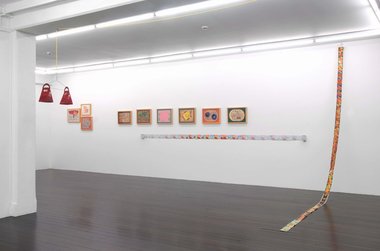
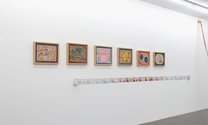
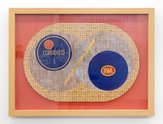
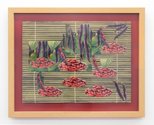
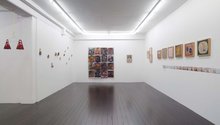

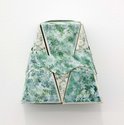


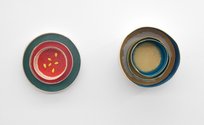
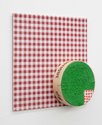


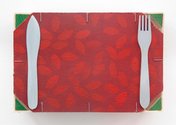

 Two Rooms presents a program of residencies and projects
Two Rooms presents a program of residencies and projects Advertising in this column
Advertising in this column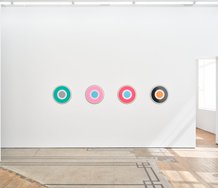
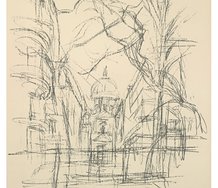
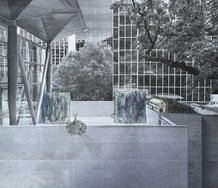
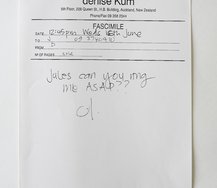
This Discussion has 5 comments.
Comment
victor berezovsky, 1:35 a.m. 26 February, 2012 #
Though I can only go by the images provided here I like the look of this show. I wouldn’t take issue with the fact that Daniel Malone has something to say and is willing to say it (God knows this is the time for it!). Individually the objects (particularly the assemblages and constructed objects) are far from didactic and have a lightness of touch, humor and vibrancy.
A show I can definitely recommend having seen it in the flesh is Karl Fritsch and Gavin Hipkins combined pieces at Hamish McKay’s. Gavin has provided fairly 'conventional' small black and white images of landscapes, architectural details and interiors that look like they are sourced or made in Europe. Karl has interacted with these, making or adding frames, cutting the surface away to reveal metal, adding bits of constructed jewelry or basic shapes of metal. Some are also treated sculpturally using blocks of crude wood as bases and sheets of glass as framing devices.
To my mind this material union could have easily been inert and clunky. However the results are overall very sophisticated and subtle.
Of late I have found Gavin’s work to be a little bit too hip and ironic but here the images read more personally and intimately. I definitely think Fritsch’s Germanic roots alleviate these more understated images to something more romantic and meditative.
There’s a strong reference to European history evident. An obvious connection can be made to Anselm Kiefer’s earlier photographic work and his later work incorporating bits of metal and objects. Probably my favorite work was an image of flowers that read as a script or pattern which Karl Fritsch added a metal frame and a series of crudely made nails hammered uniformly across the surface. A simple enough intervention but the result is beautiful and powerful. Since I’m living in Germany it made me think of Martin Luther hammering his doctrine onto the Church door of Wittenberg in 1517. Anyhow, a very interestingly nuanced exhibition that to my mind is successful due to the artists willing not to force things.
John Hurrell, 9:50 a.m. 26 February, 2012 #
Er Victor, great to have your comments on Daniel's show and my response to it. But hijacking this thread to insert your own review of Gavin and Karl's exhibition (without connecting it to Malone's) is pretty cheeky. It is only because I find your comments on the McKay show interesting (and am assuming other readers will feel likewise) that I don't remove them. However if I could reach through this screen and clip you over the ear I would.
Andrew Paul Wood, 10:10 p.m. 7 March, 2012 #
So Malone is still doing the Mowgli-fresh-out-of-the-jungle-naive fetishising of other people's cultures again? Bah! His trite obsessions with faux-Chineseness in the previous decade were tedious, and now he's trying to steer the Poles back to Communism!?!?!
He might not be exoticising the merchandise, but he's visually pontificating on a European history which he can only have a relatively superficial knowledge of. He isn't a Pole, or a historian. But then, I think it's his "playful" cultural identity thefts that have always grated on me about his work.
Visually, I quite like it, but I like to think I know enough about Central and Eastern European History to be a little horrified at the pretension of "understanding".
John Hurrell, 11:14 p.m. 7 March, 2012 #
I may disagree with the guy over this and that but Malone is no flibberty dilletante. He has total integrity and is really serious about all he undertakes. He's a well read, genuine intellectual, living on location - and passionate to boot.
Andrew Paul Wood, 8:05 p.m. 8 March, 2012 #
The Poles today are more likely to associate Communism with the Katyn Massacre, the various imprisonments and disapearings of dissidents, secret police and a whole bunch of other hideous stuff, than anything positive. Pope John Paul II is still very much a demigod because of his role in ending Communism. The artistic working through of it was done by the Poles themselves - mostly through literature, Czeslaw Milosz especially. This is an incredible naive position.
The former Habsburg Catholic dominions always thought of themselves as European ie "Western" and essentially functioning capitalists with an advanced manufacturing economy (far in advance of the Russian trainwreck of a country). The were basically shafted when they were handed over to Russia as the price for the Soviets staying out of Western Europe. They were shafted again when the American intelligentsia needed a Cold War to get the Marshall Plan through an isolationist congress. Joining the EU held out the promise of some kind of healing and to suggest anything else is cheap. Malone's research would seem to have neglected talking to some of the many defectors who fled Poland during those years.
Participate
Register to Participate.
Sign in
Sign in to an existing account.